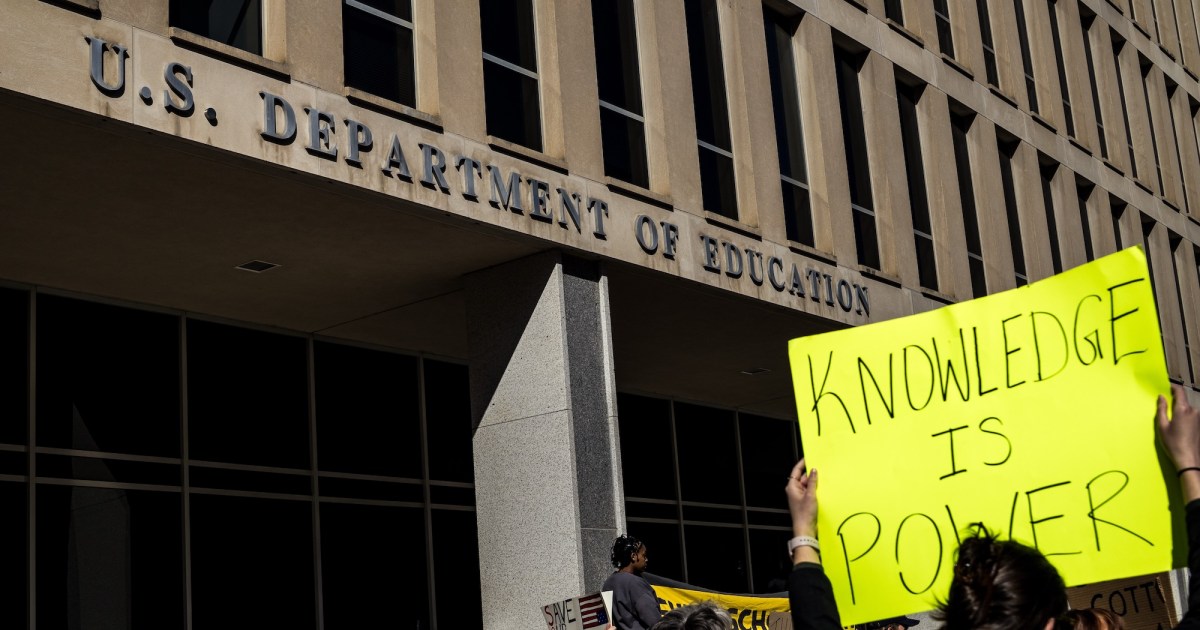Last Friday, all but two senior staff members in the federal Department of Education’s Office of Special Education Programs (OSEP) received reduction-in-force notices, according to reporting from K-12 Drive. It was part of a scourge of layoffs. 460 people across the Department of Education received RIF notices. That is roughly one in five workers in the agency.
But OSEP’s evisceration is particularly harmful.
One of the major responsibilities of OSEP is to distribute funding connected to the Individuals with Disabilities Education Act (IDEA). This accounts for the money needed for the roughly 7.5 million disabled students on Individualized Education Plans, also known as IEPs.
The federal government is supposed to pay up to 40 percent of the costs of IEPs. The actual number is floating around 13 percent. But, despite that failure, there is still a ton of money flowing through the Education Department for these programs: the agency distributed around $15 billion to states to support disabled students in 2024.
One RIF-ed employee, who worked on IDEA funding and requested anonymity, told me that the layoffs of people handling money for disabled students “was a shock to everyone” and “not something we have ever discussed as a division.”
She is not aware of any contingency plans for how IDEA funds will be distributed to states and special projects in the case of mass layoffs.
The Education Department did not respond to my request for comment on the funding cuts. (I was sent an automated email saying that the press staff has been furloughed.)
One employee who was laid off worried there would be no system in place to distribute funds for disabled students.
In a March interview on CNN, Education Secretary Linda McMahon said that even with the then-planned dismantling of the Department of Education, funding for students with disabilities would be protected.
But it is now unclear if that is true.
“I am concerned [that] without the staff to distribute funds, they will not get to the states and local districts, creating a shortfall that will harm students with disabilities,” said Michael Gilberg, a special education attorney. “This is absolutely a violation of federal law since this is money obligated to the states that would not be delivered.”
Katy Neas, CEO of the Arc, said that it is important to recognize that IDEA funding isn’t just giving out funds. OSEP is also in charge of compliance related to IDEA.
“OSEP has a robust monitoring system that states have to provide data every year on how they are doing on certain indicators,” Neas, former deputy assistant secretary in the Office of Special Education and Rehabilitative Services, said. “It will go if you don’t have anybody to manage that function—it all goes away.
This is not the only recent attack on IDEA funding. In September, OSEP canceled grants which gave technical assistance for and support for Deaf-Blind students. In a letter led by the Council of Parent Attorneys and Advocates and the Council of Administrators of Special Education, sent to McMahon, the groups argued that these and other grants “ensure all children and youth with disabilities have the best opportunities to succeed in school and beyond.” ProPublica reported on Tuesday that the Education Department reversed the funding cut decision.
While these attacks are happening under a Republican administration, there is bipartisan support for disability education services. There are companion bills in both the House and Senate to fund IEPs up to 40 percent.
Neas believes that it will be much harder for kids with disabilities to access the support they need, even if they do have support on paper.
“We need the adults to follow what the law requires of them,” Neas said, “and we need the government to be funded in a way that it can meet its obligations to these kids and families.”














